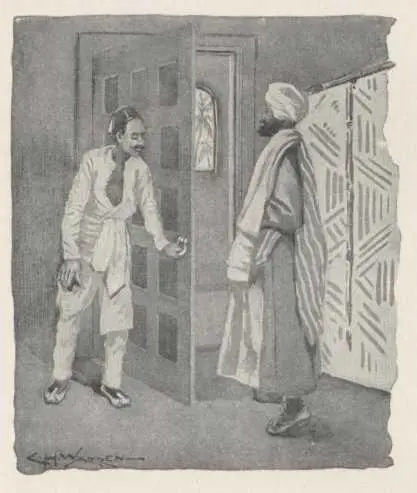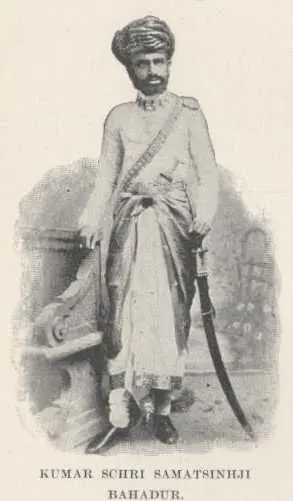Mark Twain - Following the Equator
Здесь есть возможность читать онлайн «Mark Twain - Following the Equator» весь текст электронной книги совершенно бесплатно (целиком полную версию без сокращений). В некоторых случаях можно слушать аудио, скачать через торрент в формате fb2 и присутствует краткое содержание. Год выпуска: 2004, Жанр: Классическая проза, Юмористическая проза, на английском языке. Описание произведения, (предисловие) а так же отзывы посетителей доступны на портале библиотеки ЛибКат.
- Название:Following the Equator
- Автор:
- Жанр:
- Год:2004
- ISBN:нет данных
- Рейтинг книги:3 / 5. Голосов: 1
-
Избранное:Добавить в избранное
- Отзывы:
-
Ваша оценка:
- 60
- 1
- 2
- 3
- 4
- 5
Following the Equator: краткое содержание, описание и аннотация
Предлагаем к чтению аннотацию, описание, краткое содержание или предисловие (зависит от того, что написал сам автор книги «Following the Equator»). Если вы не нашли необходимую информацию о книге — напишите в комментариях, мы постараемся отыскать её.
Following the Equator — читать онлайн бесплатно полную книгу (весь текст) целиком
Ниже представлен текст книги, разбитый по страницам. Система сохранения места последней прочитанной страницы, позволяет с удобством читать онлайн бесплатно книгу «Following the Equator», без необходимости каждый раз заново искать на чём Вы остановились. Поставьте закладку, и сможете в любой момент перейти на страницу, на которой закончили чтение.
Интервал:
Закладка:
"What is it, Satan?"
"God want to see you."
"Who?"
"God. I show him up, master?"
"Why, this is so unusual, that—that—well, you see indeed I am so unprepared—I don't quite know what I do mean. Dear me, can't you explain? Don't you see that this is a most ex——"
"Here his card, master."
Wasn't it curious—and amazing, and tremendous, and all that? Such a personage going around calling on such as I, and sending up his card, like a mortal—sending it up by Satan. It was a bewildering collision of the impossibles. But this was the land of the Arabian Nights, this was India! and what is it that cannot happen in India?
We had the interview. Satan was right—the Visitor was indeed a God in the conviction of his multitudinous followers, and was worshiped by them in sincerity and humble adoration. They are troubled by no doubts as to his divine origin and office. They believe in him, they pray to him, they make offerings to him, they beg of him remission of sins; to them his person, together with everything connected with it, is sacred; from his barber they buy the parings of his nails and set them in gold, and wear them as precious amulets.
I tried to seem tranquilly conversational and at rest, but I was not. Would you have been? I was in a suppressed frenzy of excitement and curiosity and glad wonder. I could not keep my eyes off him. I was looking upon a god, an actual god, a recognized and accepted god; and every detail of his person and his dress had a consuming interest for me. And the thought went floating through my head, "He is worshiped—think of it—he is not a recipient of the pale homage called compliment, wherewith the highest human clay must make shift to be satisfied, but of an infinitely richer spiritual food: adoration, worship!—men and women lay their cares and their griefs and their broken hearts at his feet; and he gives them his peace; and they go away healed."
And just then the Awful Visitor said, in the simplest way—"There is a feature of the philosophy of Huck Finn which"—and went luminously on with the construction of a compact and nicely-discriminated literary verdict.
It is a land of surprises—India! I had had my ambitions—I had hoped, and almost expected, to be read by kings and presidents and emperors—but I had never looked so high as That. It would be false modesty to pretend that I was not inordinately pleased. I was. I was much more pleased than I should have been with a compliment from a man.
He remained half an hour, and I found him a most courteous and charming gentleman. The godship has been in his family a good while, but I do not know how long. He is a Mohammedan deity; by earthly rank he is a prince; not an Indian but a Persian prince. He is a direct descendant of the Prophet's line. He is comely; also young—for a god; not forty, perhaps not above thirty-five years old. He wears his immense honors with tranquil grace, and with a dignity proper to his awful calling. He speaks English with the ease and purity of a person born to it. I think I am not overstating this. He was the only god I had ever seen, and I was very favorably impressed. When he rose to say good-bye, the door swung open and I caught the flash of a red fez, and heard these words, reverently said—
"Satan see God out?"
"Yes." And these mis-mated Beings passed from view Satan in the lead and The Other following after.

CHAPTER XL.
Few of us can stand prosperity. Another man's, I mean.
—Pudd'nhead Wilson's New Calendar.
The Government House at Malabar Point—Mansion of Kumar Shri Samatsin Hji Bahadur—The Indian Princess—A Difficult Game—Wardrobe and Jewels—Ceremonials—Decorations when Leaving—The Towers of Silence—A Funeral
The next picture in my mind is Government House, on Malabar Point, with the wide sea-view from the windows and broad balconies; abode of His Excellency the Governor of the Bombay Presidency—a residence which is European in everything but the native guards and servants, and is a home and a palace of state harmoniously combined.
That was England, the English power, the English civilization, the modern civilization—with the quiet elegancies and quiet colors and quiet tastes and quiet dignity that are the outcome of the modern cultivation. And following it came a picture of the ancient civilization of India—an hour in the mansion of a native prince: Kumar Schri Samatsinhji Bahadur of the Palitana State.
The young lad, his heir, was with the prince; also, the lad's sister, a wee brown sprite, very pretty, very serious, very winning, delicately moulded, costumed like the daintiest butterfly, a dear little fairyland princess, gravely willing to be friendly with the strangers, but in the beginning preferring to hold her father's hand until she could take stock of them and determine how far they were to be trusted. She must have been eight years old; so in the natural (Indian) order of things she would be a bride in three or four years from now, and then this free contact with the sun and the air and the other belongings of out-door nature and comradeship with visiting male folk would end, and she would shut herself up in the zenana for life, like her mother, and by inherited habit of mind would be happy in that seclusion and not look upon it as an irksome restraint and a weary captivity.
The game which the prince amuses his leisure with—however, never mind it, I should never be able to describe it intelligibly. I tried to get an idea of it while my wife and daughter visited the princess in the zenana, a lady of charming graces and a fluent speaker of English, but I did not make it out. It is a complicated game, and I believe it is said that nobody can learn to play it well—but an Indian. And I was not able to learn how to wind a turban. It seemed a simple art and easy; but that was a deception. It is a piece of thin, delicate stuff a foot wide or more, and forty or fifty feet long; and the exhibitor of the art takes one end of it in his two hands, and winds it in and out intricately about his head, twisting it as he goes, and in a minute or two the thing is finished, and is neat and symmetrical and fits as snugly as a mould.

We were interested in the wardrobe and the jewels, and in the silverware, and its grace of shape and beauty and delicacy of ornamentation. The silverware is kept locked up, except at meal-times, and none but the chief butler and the prince have keys to the safe. I did not clearly understand why, but it was not for the protection of the silver. It was either to protect the prince from the contamination which his caste would suffer if the vessels were touched by low-caste hands, or it was to protect his highness from poison. Possibly it was both. I believe a salaried taster has to taste everything before the prince ventures it—an ancient and judicious custom in the East, and has thinned out the tasters a good deal, for of course it is the cook that puts the poison in. If I were an Indian prince I would not go to the expense of a taster, I would eat with the cook.
Ceremonials are always interesting; and I noted that the Indian good-morning is a ceremonial, whereas ours doesn't amount to that. In salutation the son reverently touches the father's forehead with a small silver implement tipped with vermillion paste which leaves a red spot there, and in return the son receives the father's blessing. Our good morning is well enough for the rowdy West, perhaps, but would be too brusque for the soft and ceremonious East.
Читать дальшеИнтервал:
Закладка:
Похожие книги на «Following the Equator»
Представляем Вашему вниманию похожие книги на «Following the Equator» списком для выбора. Мы отобрали схожую по названию и смыслу литературу в надежде предоставить читателям больше вариантов отыскать новые, интересные, ещё непрочитанные произведения.
Обсуждение, отзывы о книге «Following the Equator» и просто собственные мнения читателей. Оставьте ваши комментарии, напишите, что Вы думаете о произведении, его смысле или главных героях. Укажите что конкретно понравилось, а что нет, и почему Вы так считаете.











